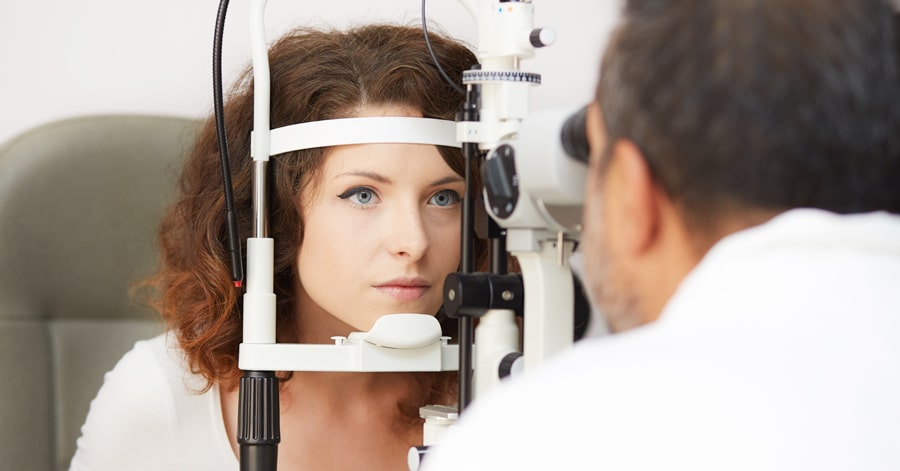Can you Get Vision Coverage on Medicaid?

If you have Medicaid, you probably assume you don’t have vision benefits. It’s not a widely spoken about benefit with this insurance. The good news is, though, that you may have some benefits (limited as they may be). Keep reading to learn how your Medicaid policy may help with your vision needs.
[sc_content_link label=”Get today’s insurance rates.” cat=”health”]
Medically Necessary Eye Care
First, Medicaid does cover medically necessary eye care. Unfortunately, this doesn’t mean glasses or contacts. It means the diagnosis and treatment of any injury, illness, or disease of the eye. These are not services you would receive from an optometrist at your local eyeglass shop. Diagnosis and treatment of serious eye issues come from an ophthalmologist, who is a medical practitioner that can diagnose such issues.
How Eye Exams can Get Covered
Now we basically said that routine eye exams aren’t covered and that’s still the case. However, there are certain eye exams that can be covered. If your ophthalmologist determines that an eye exam is necessary after the diagnosis of a particular issue, Medicaid may cover it. This is also the case if you have a pre-existing illness that affects your vision and requires eye exams to determine the effects of the illness on it.
The most common conditions that meet these requirements include:
- Glaucoma
- Cataracts
- Complications of diabetes
- Dry eye syndrome
- Ripped retina
If you don’t have any of these diagnosed issues, you may or may not get routine eye exams covered – it depends on the state that you live. For example, residents of Arizona and Florida do not get vision benefits for routine eye exams with Medicaid. Residents of Connecticut and Illinois, however, can have one eye exam covered per year and residents of Arkansas and California can have a covered eye exam once every two years.
[sc_content_link label=”Shop and compare insurance quotes.” cat=”health”]
Prescription Glasses and Medicaid
If your eye exam shows that you need glasses, you may or may not get coverage for it. Again, if the doctor can prove that the glasses are medically necessary, Medicaid may cover them. This means that you have a disease or illness that affects your vision that glasses could correct.
If you just need glasses because you don’t have 20/20 vision, you may have a harder time getting coverage from Medicaid. Again, it depends on the benefits in your state. Some states allow you to get glasses once every few years, say once every two or three years, but a few states do allow new glasses on an annual basis.
Contact Lenses and Medicaid
For the most part, Medicaid doesn’t cover contact lenses because they are considered a ‘cosmetic preference.’ However, if you have a diagnosed disease that requires contact lenses rather than glasses your doctor can help you get the contacts covered.
If you don’t have Medicaid coverage for vision, you can call around to vision centers in your area and ask about their ‘cash price.’ Many companies offer discounts to clients paying cash because they know they won’t get the full amount that they charge from patients with insurance as insurance companies have negotiated rates with the vision center. Taking care of your vision is important so finding a way to afford the care you need is essential.
[sc_content_link label=”Get the right insurance coverage.” cat=”health”]
